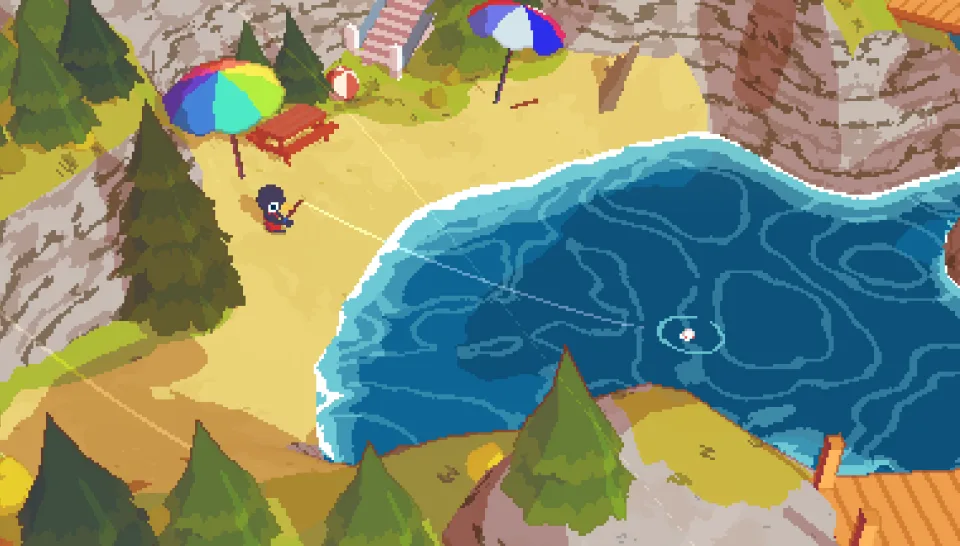In recent years, there has been a surge in the popularity of self-proclaimed “cozy games” – video games explicitly crafted to evoke positive and calming vibes. However, it’s crucial to note that being cozy doesn’t automatically equate to being good. Recognizing the need for games that facilitate relaxation after a hectic day, we’ve curated a selection of chill games that strike a harmonious balance. These games intentionally downplay fail states, violence, arduous grinds, intense competition, and other aggressive elements, without leaning excessively into cuteness or becoming overly simplistic. Whether you’re gaming on your Nintendo Switch, PlayStation, Xbox, PC, or smartphone, here are some of the best relaxing games to unwind with.
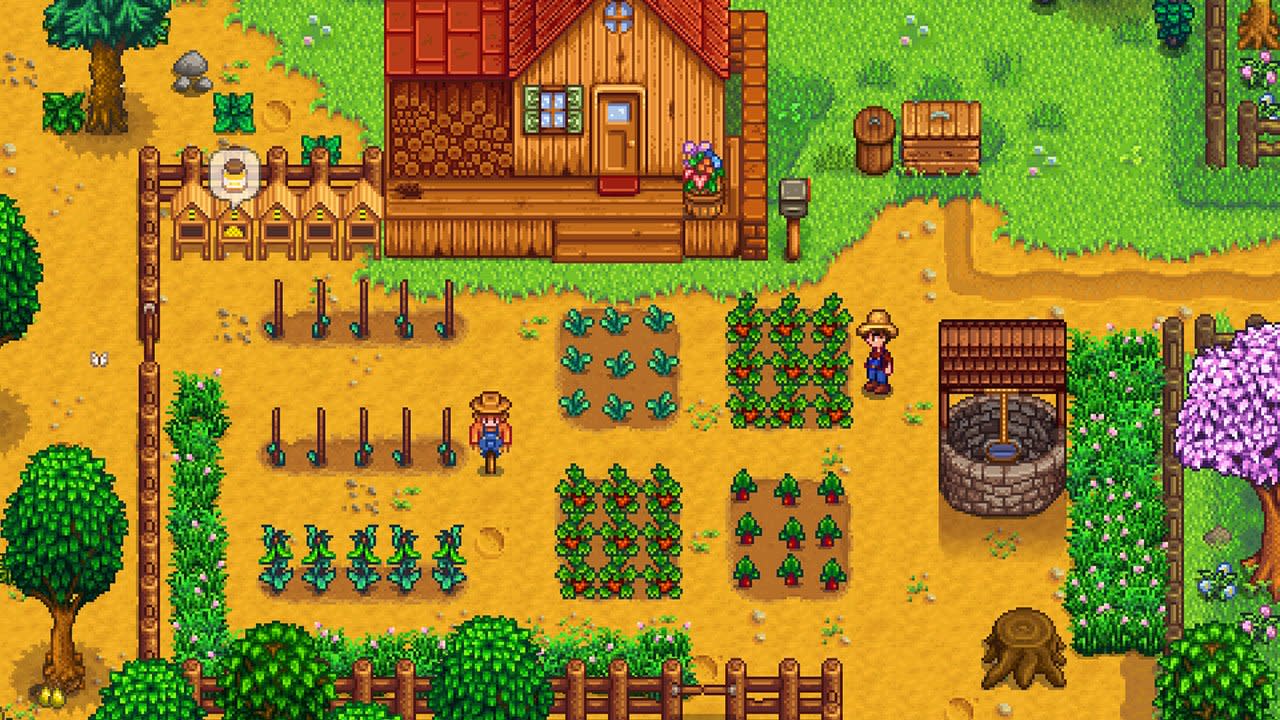
Stardew Valley
Stardew Valley, renowned not only as one of the best couch co-op games but also for its serene qualities as a farming life simulator, stands out for its ability to provide a truly relaxing experience. The game embraces a tranquil atmosphere and adapts to your preferred pace. Whether you fancy leisurely tending to your farm, engaging in conversations with townsfolk, brewing beer, or indulging in a few hours of fishing, Stardew Valley accommodates your choices.
On the contrary, for those seeking a more ambitious approach, the game allows you to transform your land into a model of ruthless efficiency, albeit at the cost of a potentially more overwhelming experience. Stardew Valley takes its time to unfold, allowing players the freedom to progress without external pressures or rush. The trajectory of advancement always points upward, creating an alternate, stress-free life within the game where the choice to take it easy is entirely yours.

Animal Crossing: New Horizons
While Animal Crossing: New Horizons might be an obvious choice, its explosion in popularity during the pandemic in 2020 was no coincidence. It epitomizes the quintessential Relaxing Video Game with a nonviolent, escapist fantasy that lacks fail states, and overwrought narratives, and features constant progression. The game’s overarching goal is to develop a deserted island according to your preferences. Activities include planting flowers, catching bugs, creating pathways, conversing with animal neighbors, collecting various items, and simply hanging out.
The passage of time in the game mirrors real-time, occasionally requiring you to patiently wait to complete tasks. Superficially, many of the in-game activities seem comically unremarkable (no saving kingdoms, just buying furniture). However, akin to Stardew Valley, it’s the deliberate slowness and focus on the mundane that gives Animal Crossing its charm. The game highlights life’s simple pleasures—watching things grow, building relationships, anticipating the surprises each new day brings—and provides a space to savor these experiences, albeit in a virtual fashion.
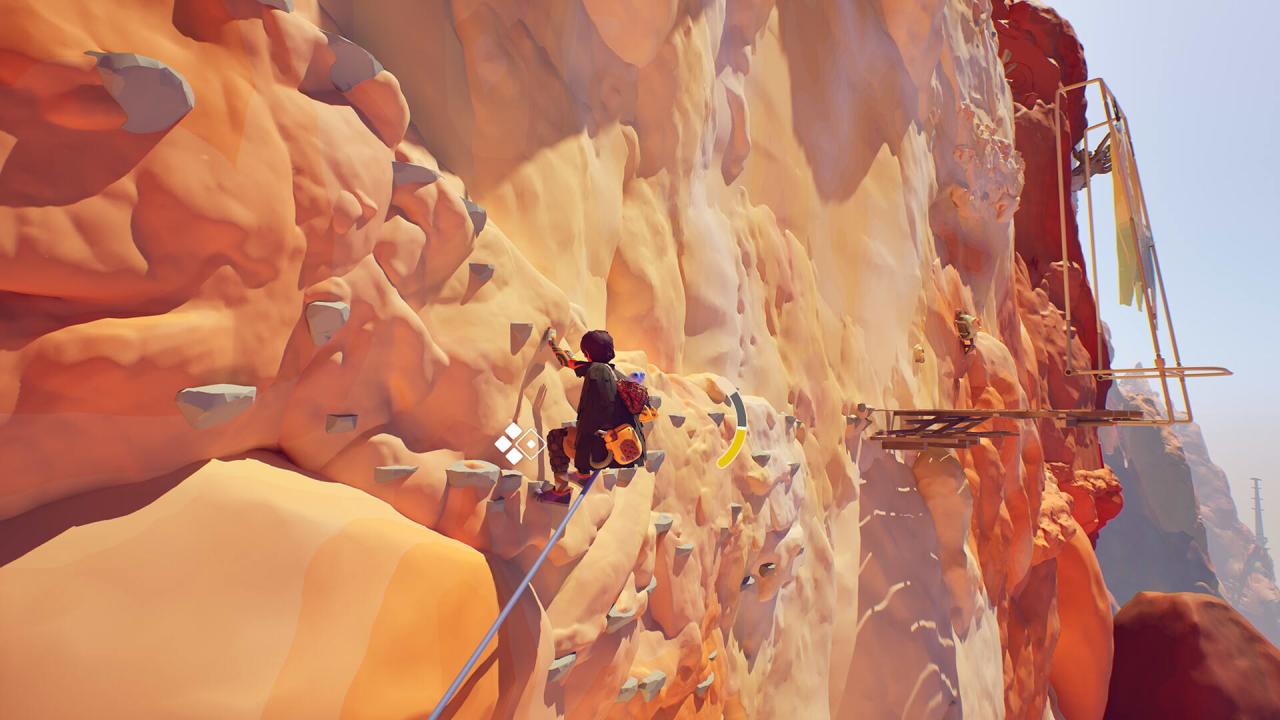
Jusant
Jusant is a serene and contemplative game centered around the activity of rock climbing. The premise is straightforward: a towering rocky monolith extends into the clouds, and as a young protagonist, your mission is to ascend it. Along the way, remnants of past civilizations that once inhabited the tower serve as artifacts, weaving a narrative of environmental decline, told through subtle notes and meticulous set design rather than clichéd dialogue. The game’s essence is reminiscent of Journey, another tranquil and introspective title that explores profound themes, although Jusant takes a different gameplay approach.
The effectiveness of Jusant lies in its control scheme. Each hand is assigned to a trigger button, allowing players to clasp and release in tandem with their character’s movements. With the aid of a generous rope and a set of pitons, players navigate between handholds before their stamina depletes. While the game leans more towards being a vertical platformer than a realistic simulation, with a predetermined path to follow, the physicality of playing Jusant is striking. This design choice encourages thoughtful consideration of each move, emphasizing the need to collaborate with the environment for progress rather than breezing through it passively. Although lacking in combat or the risk of death from mistakes, this absence might be seen as Jusant’s major flaw, yet it allows players to fully immerse themselves in the gradual, focused ascent.
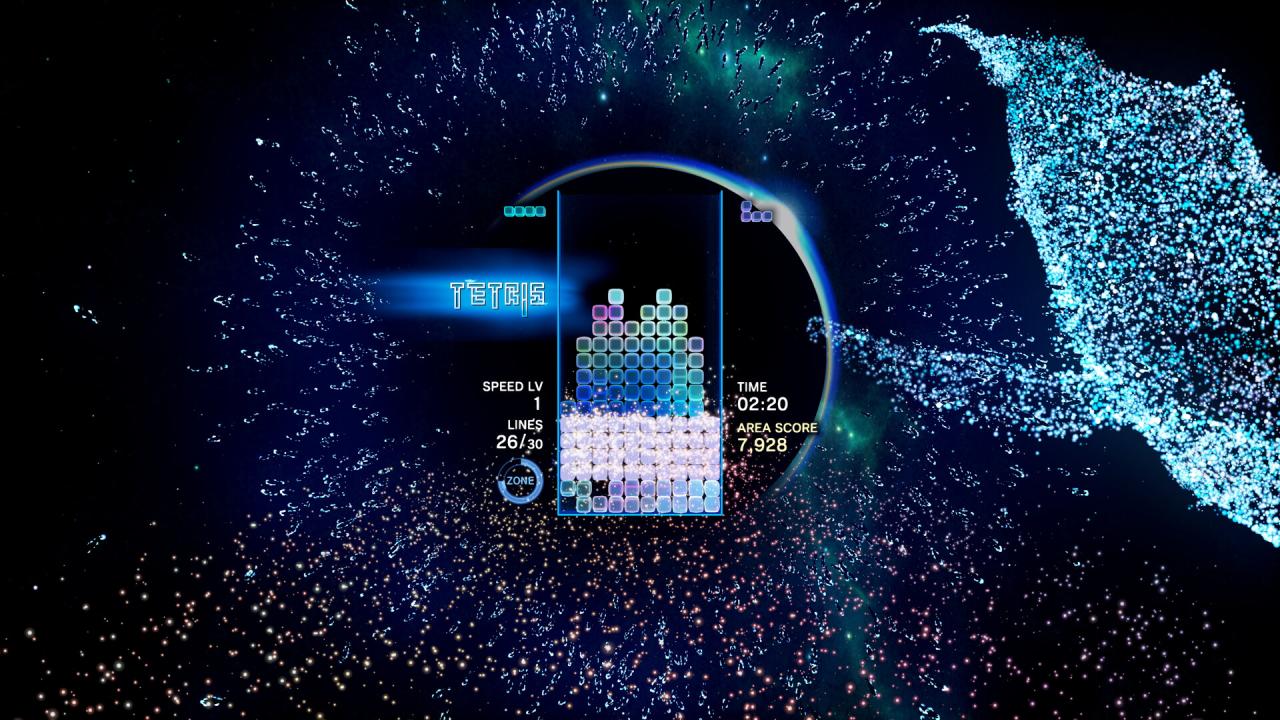
Tetris Effect: Connected
Tetris Effect essentially represents a visually enhanced iteration of the classic falling-block puzzle game that has captivated global audiences since the mid-’80s. With its spacey soundtrack and themed boards, the game takes on an ethereal, almost spiritual quality that aligns seamlessly with the trance-like state often induced by playing Tetris (explaining the title’s choice).
It’s important to note that Tetris is not inherently the most relaxing game. The urgency it creates as players strive to rectify past decisions is a fundamental aspect of its appeal, and certain modes in Tetris Effect actively thrive on inducing stress. However, the game also features modes explicitly designed to tap into its zen-like aspects. For example, “Chill Marathon” resets your score upon failure instead of issuing a game over. Given that Tetris has become second nature to an unusually large number of people, it merits an exception in the context of relaxing games. While it can be challenging, even in moments of failure, Tetris Effect has the unique ability to induce a mind-freeing state that few other games can replicate.
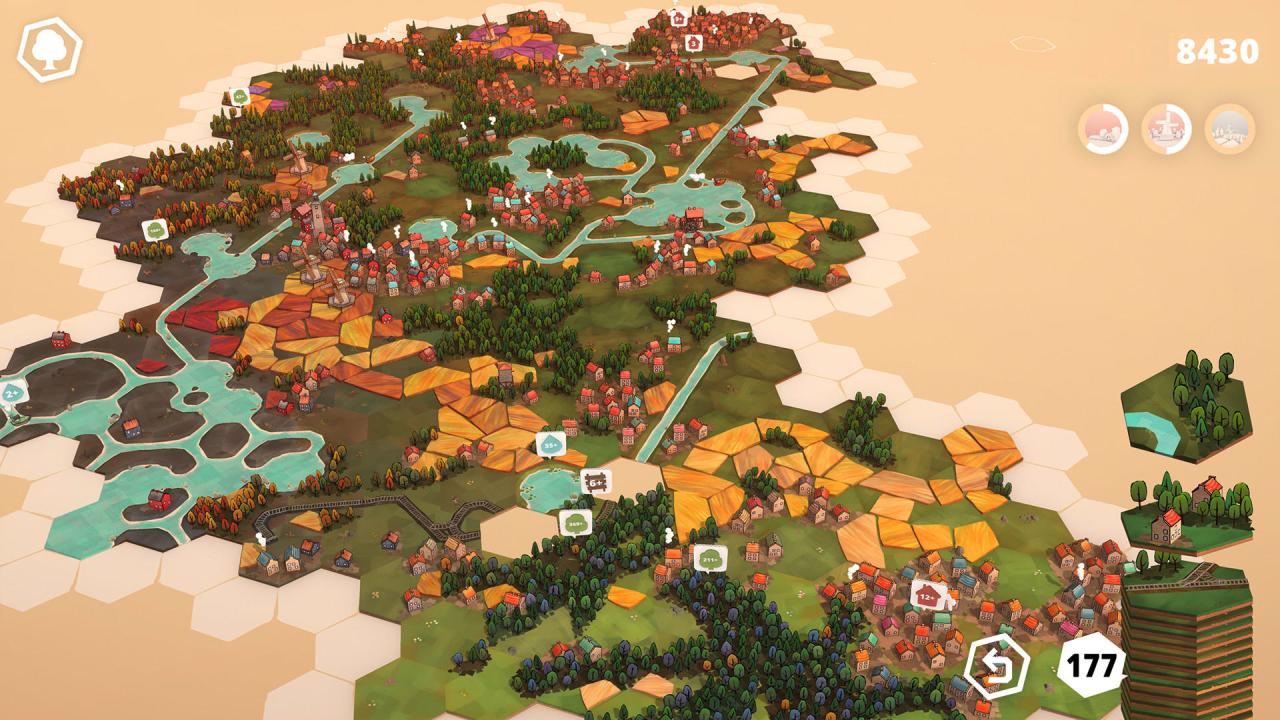
Dorfromantik
Dorfromantik is a puzzle game that invites players to construct an idyllic countryside by laying down tiles of various types, such as forests, fields, rivers, railroads, and quaint houses. The objective is to connect similar pieces and fulfill miniature “quests” to expand your overall tile collection. As you can only view a few tiles at a time, each game results in a unique landscape.
While the need to continually acquire tiles introduces a form of pressure, Dorfromantik is a game that advocates for a relaxed and self-paced approach. There are no time constraints, and the concept of “winning” is not rigidly defined. The game encourages thoughtful consideration of each tile, prompting players to assess the terrain and how each piece fits into the evolving landscape. Upon depleting the tile supply, players often find themselves with a visually pleasing scene. For those who prefer building without constraints, there is a separate mode dedicated to unrestricted landscape creation.
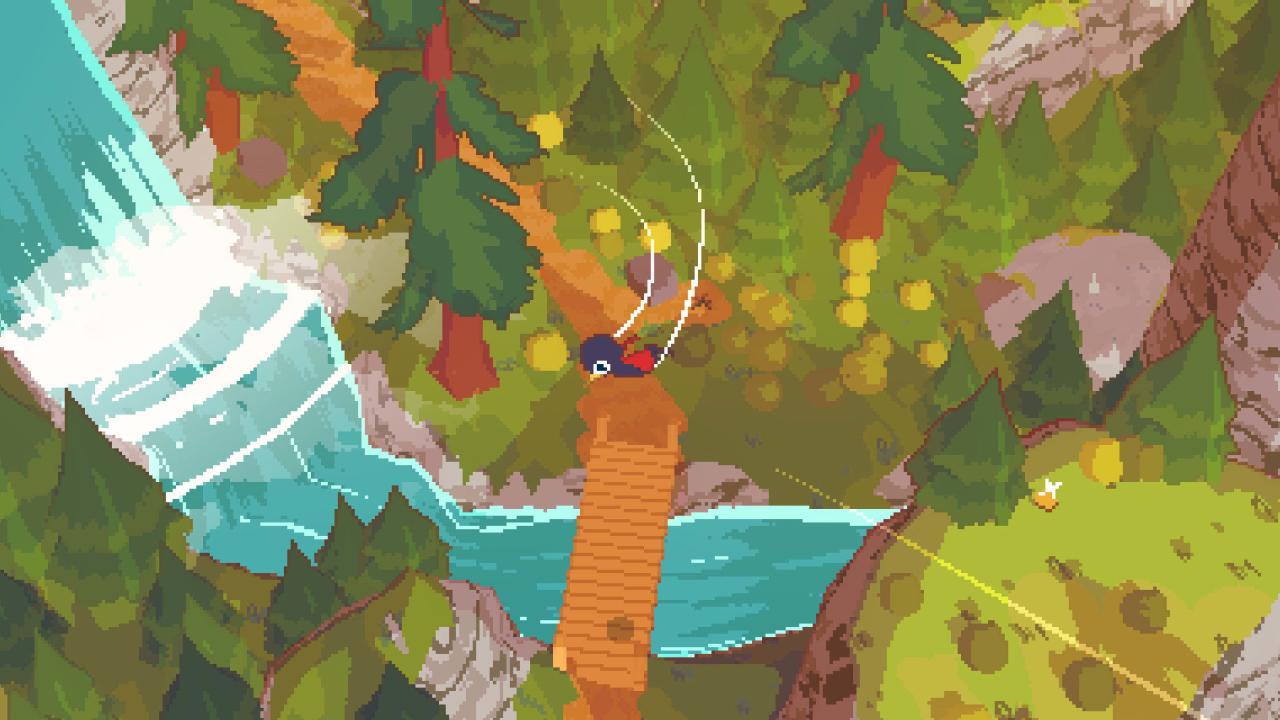
A Short Hike
A Short Hike is a delightful adventure game that seamlessly aligns with its own essence. You assume the role of Claire, a young bird in a world inhabited by anthropomorphic animals, residing in a quaint yet lively provincial park. Claire is burdened by something, and the only spot with cellular reception for her important phone call is the mountaintop at the park’s center. Your sole objective throughout the two-hour runtime is to guide her there.
While A Short Hike incorporates a traditional core involving light fetch quests and collecting golden feathers for enhanced mobility, these tasks are straightforward. What becomes apparent is that you can freely soar around the park, interacting with other visitors and enjoying the scenery at your own pace. Beyond the simple joy it brings, this freedom beautifully aligns with the game’s themes – the mountain beckons, but you’re not compelled to climb it immediately. When you eventually do, the world remains open for exploration, symbolizing the idea that the journey is as important as reaching the destination.
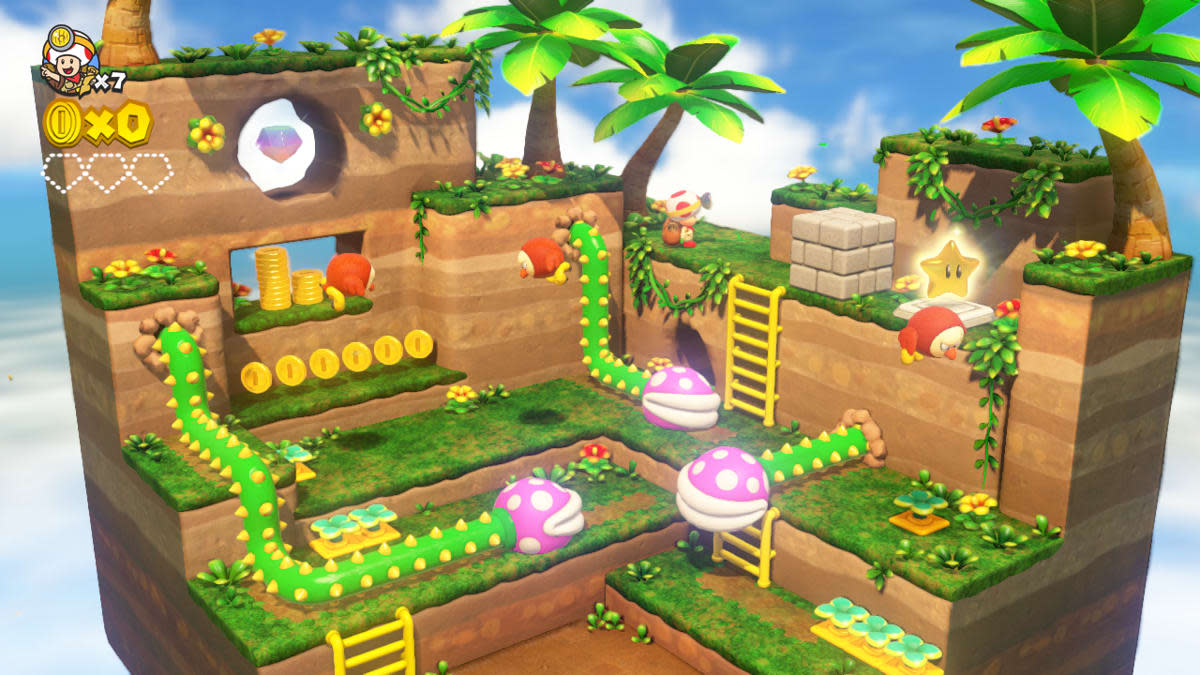
Captain Toad: Treasure Tracker
Captain Toad: Treasure Tracker is an endearing puzzle-platformer that guides players through a series of contained, diorama-like levels, each culminating in a gold star. Technically a spin-off from the Super Mario series, this game puts a unique twist on traditional gameplay – Captain Toad can’t jump. Instead, players must navigate densely-packed spaces from various angles, manipulating the camera to uncover hidden pathways and bonus treasures.
The overall experience is neither excessively lengthy nor exceptionally challenging, but in true Nintendo fashion, it consistently introduces new and playful ideas, each as charming and meticulously crafted as the last. While it may not scale the creative peaks of the best Mario games (some of which share the same development team), Captain Toad: Treasure Tracker exudes the same amiable and laid-back vibe, offering a delightful and easygoing adventure.
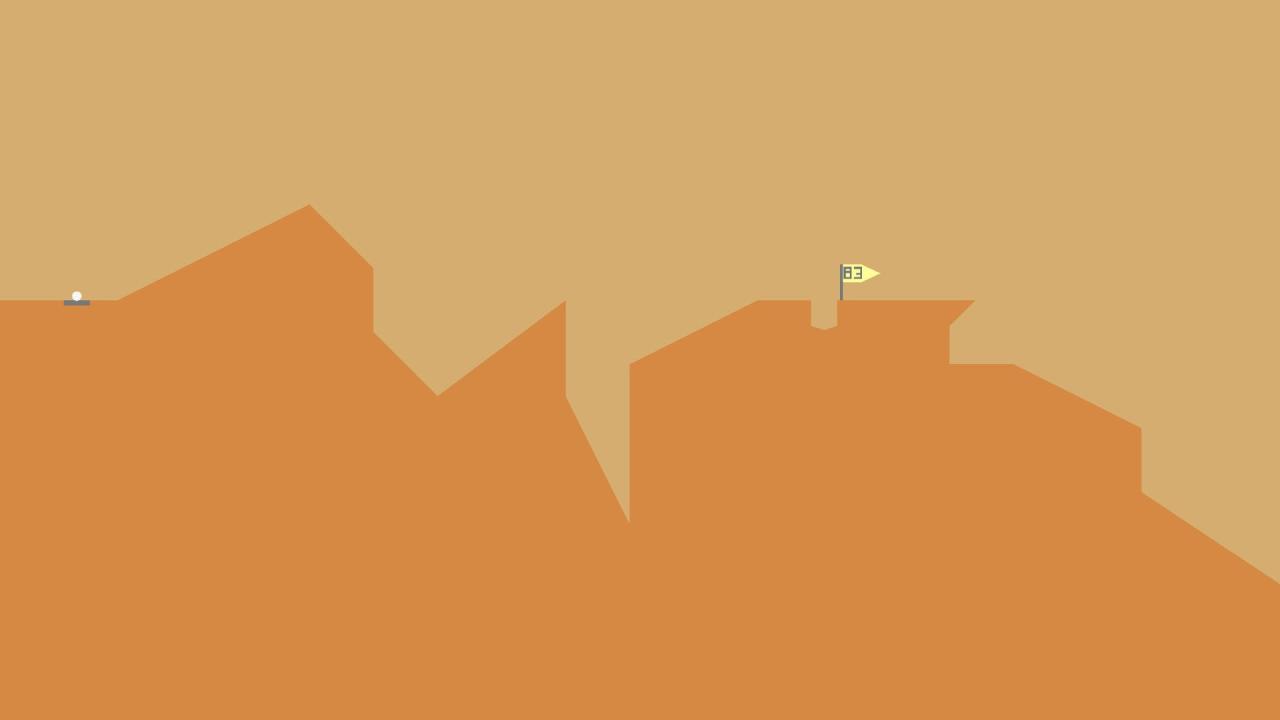
Desert Golfing
Desert Golfing is precisely what its name suggests, and nothing more. It features a ball, a hole, and procedurally generated desert terrain in between. No par, no club selection, no music, no items, no pause menu, no restarts, not even an avatar. The gameplay involves dragging a cursor to determine the next shot’s angle and power, aiming to get from point A to B. Once achieved, a new hole appears, and the cycle continues indefinitely (although the game technically has an “ending”).
On paper, Desert Golfing might seem overly simple, possibly serving as a subtle critique of time-consuming and player-exploitative mobile games. However, the actual playing experience borders on meditative. The game’s radical minimalism creates an environment where everything and nothing matter simultaneously. While there’s a shot counter at the top, it holds no real significance, merely indicating how long you’ve been playing. You can spend 60 shots on one hole, yet there’s no judgment. Instead, the focus is entirely on the simple pleasure of guiding a ball through the air, watching it kick up sand, and eventually landing in the hole. It prioritizes the act of play over the rules of a game – it’s about golfing, not golf. When something new does appear, whether it’s a well of water, a setting sun, or a cactus, it feels truly momentous in this minimalist landscape.
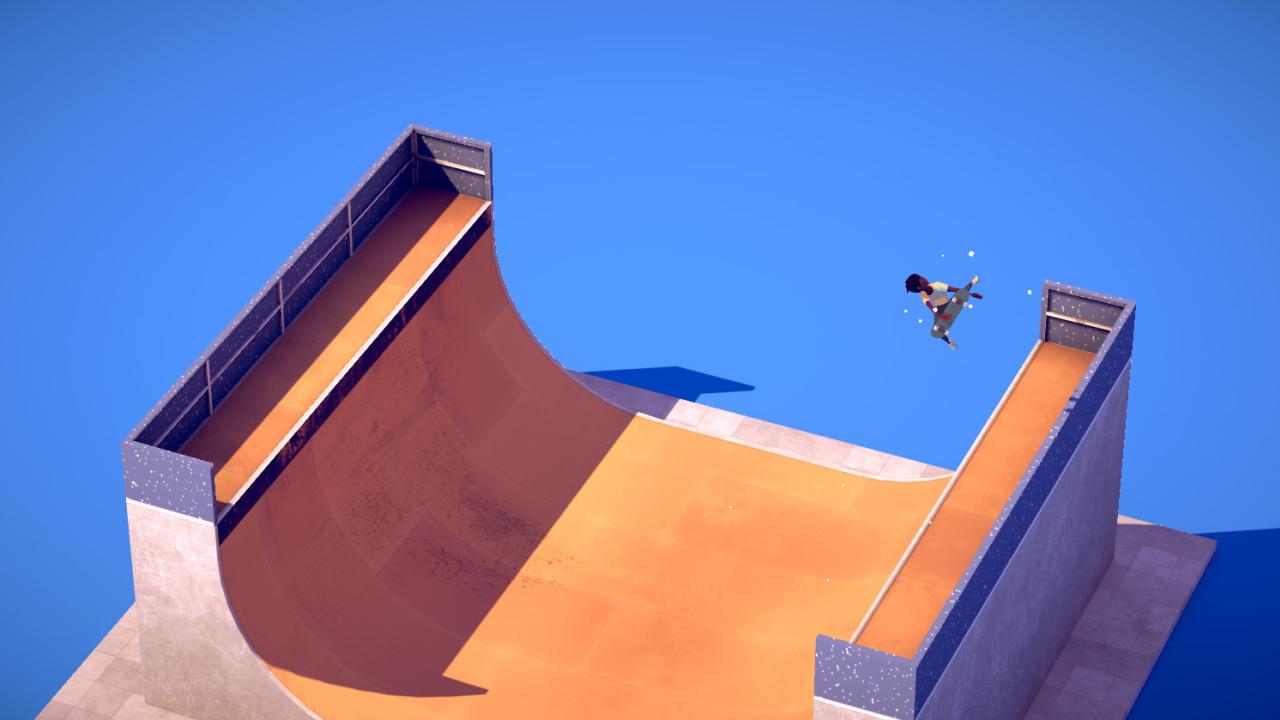
The Ramp
Much like Desert Golfing, The Ramp stands out as a successful experiment in minimalism, offering a distinctive take on skateboarding games compared to the Tony Hawk series. It liberates players from high scores, skill points, objectives, camera adjustments, or a HUD, respecting them enough to unlock all courses and characters after a brief tutorial.
While it may take a moment to grasp the controls, The Ramp excels at capturing the sheer joy of motion and momentum in vertical skateboarding. Whether launching at high speed, experiencing that fleeting moment of weightlessness in the sky, or feeling the exhilaration of gravity pulling you back down, the game masterfully conveys the essence of vert skating. With a handful of tricks to perform, tranquil music setting the tone, and no significant penalty for mistakes, The Ramp may not be the “deepest” game by conventional standards. Its developer aptly describes it as a “digital toy,” and in that capacity, The Ramp excels, delivering a focused and uncompromising experience.
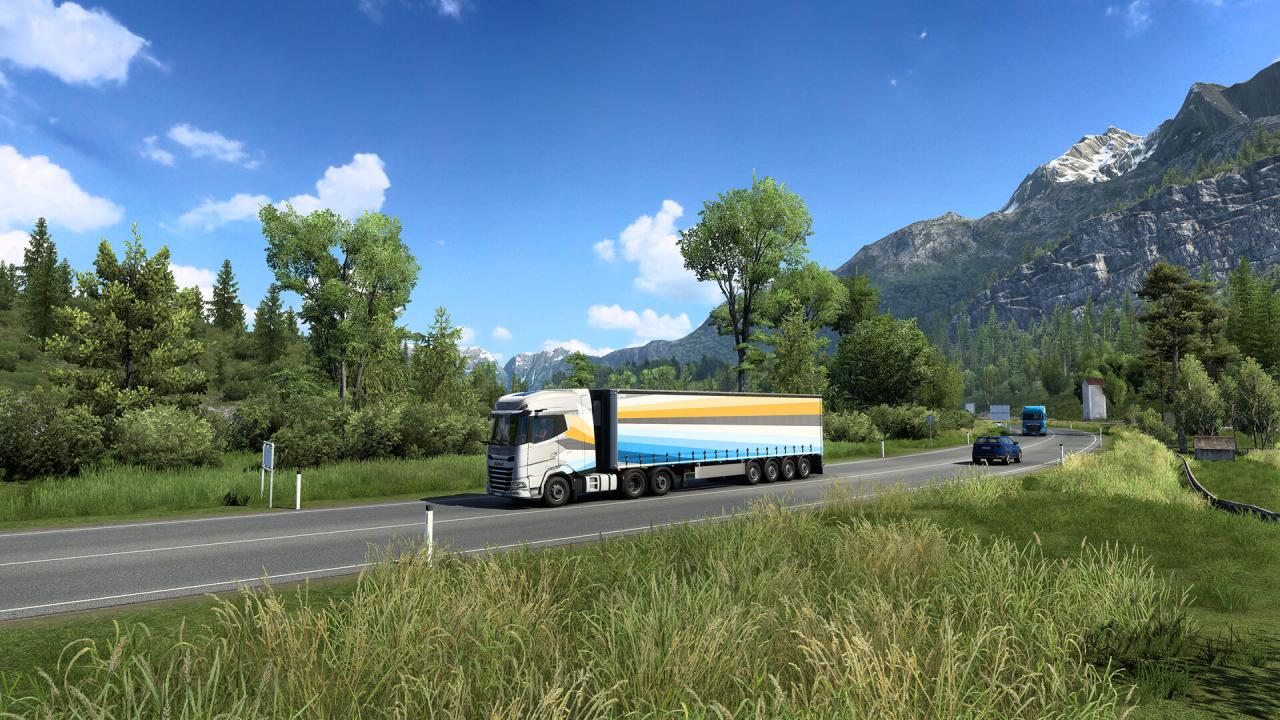
Euro Truck Simulator 2
Euro Truck Simulator 2 provides an immersive experience where players can drive various large trucks across a condensed version of Europe, engaging in cargo deliveries and eventually establishing their own trucking business. In contrast to Grand Theft Auto games, Euro Truck Simulator 2 is a simulation that requires adherence to traffic laws, vehicle refueling, and timely, damage-free deliveries.
While the game is most enjoyable with a racing wheel, it is by no means a necessity. Euro Truck Simulator 2 has a learning curve that may not be the gentlest, and its management elements might not be as captivating as the actual trucking, but it offers pleasures akin to real-life driving. Cruising down a lengthy road, tapping your thumb to the radio, admiring the scenery, and following the route evoke a sense of realism. In Euro Truck Simulator 2, the journey is as important as reaching the destination, allowing players to embrace the laid-back and unhurried nature of the trucking experience.
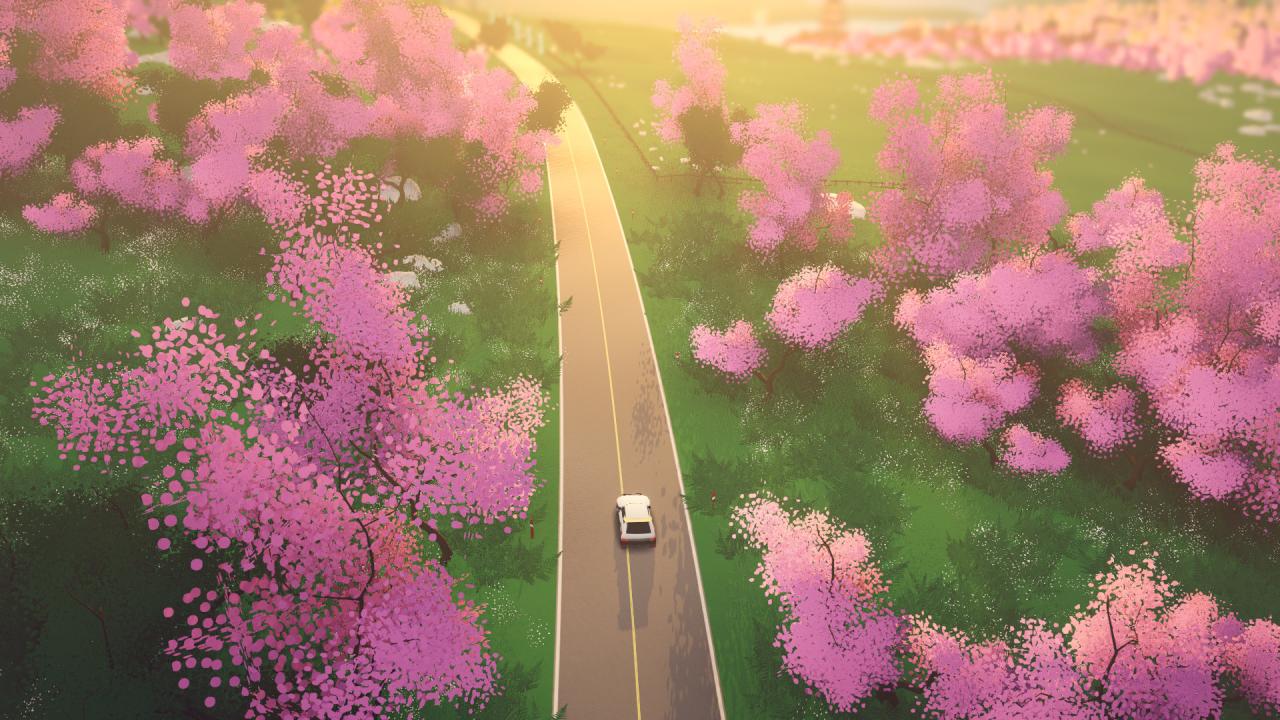
Art of Rally
Art of Rally distinguishes itself as a stylish, mostly top-down racing game accompanied by an exceptional synthwave soundtrack. Positioned between simulation and arcade racers in terms of handling, it strikes a balance with a tangible heft to the toylike cars gliding through the game’s vibrant, low-poly landscapes. The playful career mode leads players through various rally car groups, complemented by a free roam mode and online challenges. For those seeking a challenge, top leaderboard times are attainable, but the game’s generous assist and difficulty options allow for an accessible driving experience.
Much like other games on this list, Art of Rally defines itself by what it excludes as much as what it includes: no driving line, no cluttered HUD, no photorealistic environments, no co-driver, and no lyrics in the music. Instead, it offers your car, a timer, and a winding road. This intentional simplicity naturally draws players into a state of flow, that semi-conscious immersion that quiets the world and aligns you with a digital experience. As the name suggests, Art of Rally is more focused on the artistic aspect of rally driving than the mechanics of rally itself, providing an immersive and captivating experience.
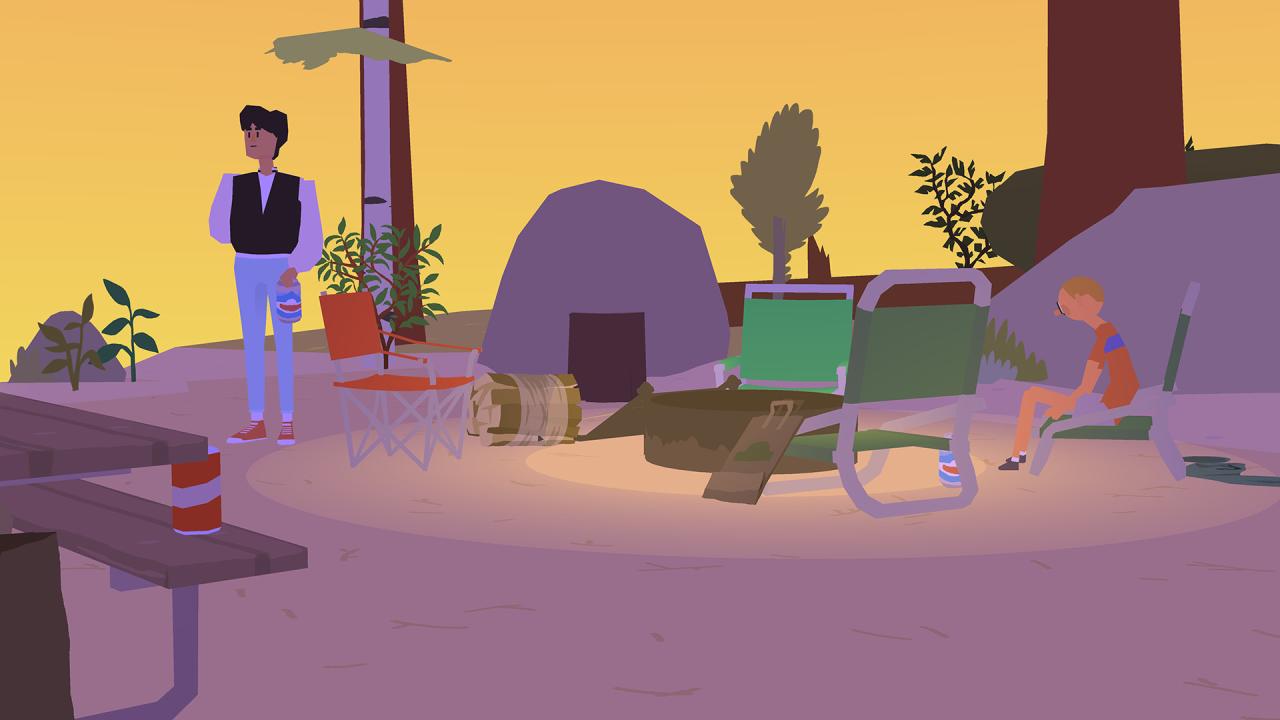
Wide Ocean Big Jacket
Wide Ocean Big Jacket stands out among the plethora of easy-to-play “walking simulators” in recent years for its heartwarming short story. Despite its crude animation and approximately one-hour duration, the game manages to develop more relatable and human characters within that timeframe than many big-budget games achieve in 50 to 100 hours.
The narrative revolves around the camping trip of a young couple, Brad and Cloanne, accompanied by their 13-year-old niece Mord and her friend Ben. Through the journey, the characters learn valuable lessons about love and each other. The game exudes the charm of an indie comedy – a bit quirky, humorous without being mean-spirited, honest without being verbose, and emotionally resonant when it reaches the story’s conclusion. In contrast to games featuring combat and apocalyptic scenarios, Wide Ocean Big Jacket focuses on the specific moment and relationships of its characters, presented in a style reminiscent of memories, accentuated by bold colors.
The game’s unique approach to interactivity plays a significant role in enhancing the narrative experience. Instead of directly controlling a specific character, players often assume a directorial role behind the camera. This allows for active participation and deeper engagement with each scene, despite having limited influence on the unfolding events of the story.
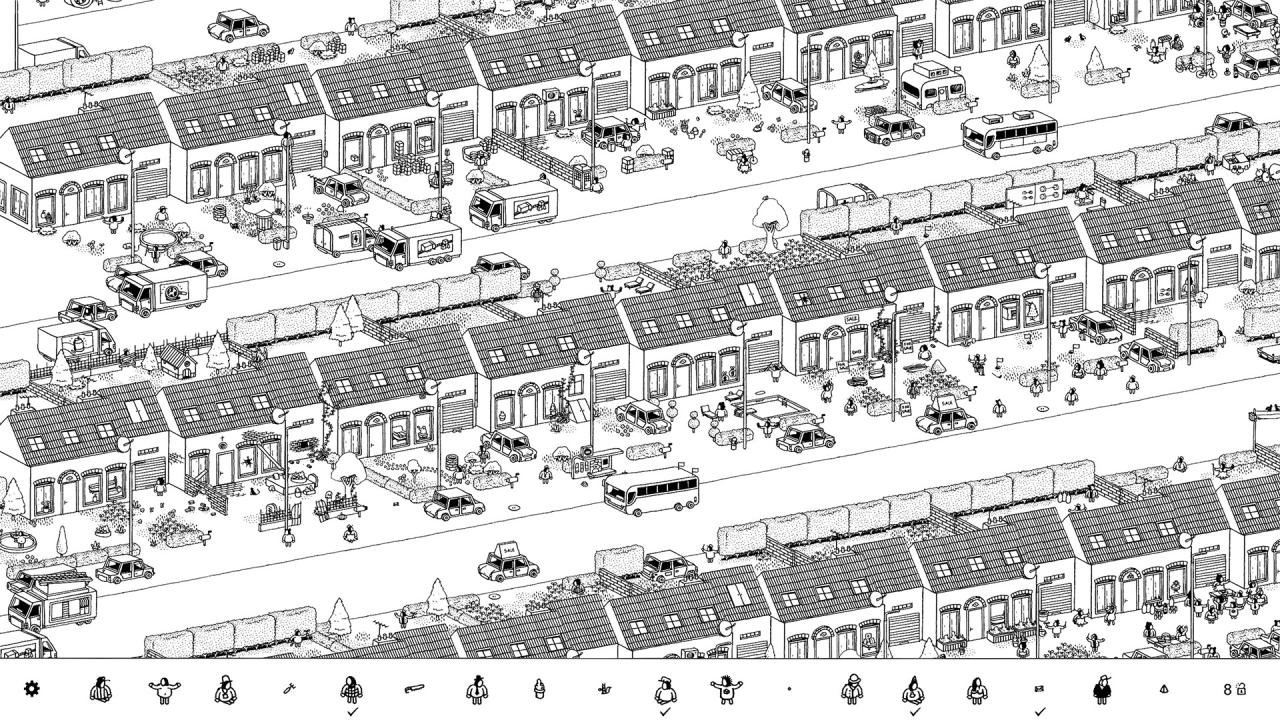
Hidden Folks
Hidden Folks is akin to a digital rendition of those Where’s Waldo? puzzle books that many may have enjoyed as children. The game offers a series of vibrant, detailed scenes teeming with life and micro-narratives. Players are provided with a list of items to uncover, and once enough are found, they can progress to the next stage. The monochrome art is hand-drawn, and the sound effects are crafted from people’s voices, contributing to a cute, intimate, and often humorous atmosphere.
While the challenge of finding specific items in a busy scene may become frustrating for some, Hidden Folks encourages players to slow down and be patient. There’s no sense of urgency; the characters on the screen aren’t going anywhere. The game invites players to immerse themselves in the delightful world of intricate illustrations and discover the hidden gems within each scene.
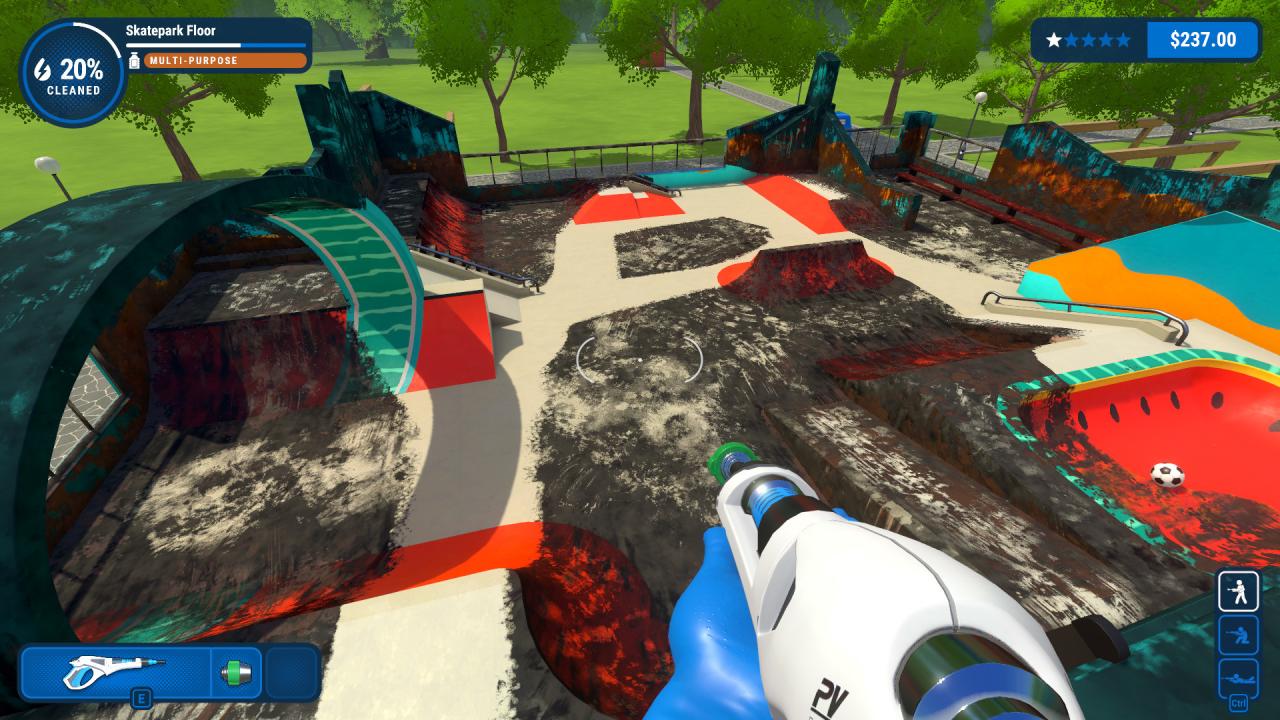
PowerWash Simulator
PowerWash Simulator provides a gaming experience akin to those oddly satisfying YouTube videos showcasing deep-cleaning activities. In the game, players take on various power washing jobs around the town of “Muckingham,” gradually eliminating grime from different objects with each assignment. The gameplay involves no time limits or scores to meet, allowing players to focus on the task at hand, with each dirty item having a corresponding progress bar to fill.
Surprisingly, PowerWash Simulator offers more depth than one might anticipate. Players can earn money to invest in upgraded power washing equipment, and the game includes a narrative mode that adds literal and metaphorical layers to the experience. While it may seem like an unnecessary addition, the game’s pleasures are multifaceted, ranging from the immediate satisfaction of transforming a dirty surface into a pristine one to the larger sense of accomplishment achieved through systematically working toward a job well done.

Unpacking
Unpacking is a minimalist puzzle game centered around the task of unpacking boxes. In the game, players meticulously go through collections of knick-knacks, arranging them in different rooms across a sequence of homes. Despite being almost entirely wordless, Unpacking manages to convey a narrative through its isometric environments. The boxes being unpacked belong to the same character, and each move occurs in a different year of their life, creating a subtly wistful tone accentuated by pixelated visuals.
While Unpacking adheres to puzzle game mechanics, making items glow red until placed in a “correct” location, some players might find this restrictive. The desire to arrange items freely, mirroring the messiness of real-life moves, clashes with the game’s structured approach. Despite its somewhat gamified elements, Unpacking offers a quiet catharsis, allowing players to indulge in the fantasy of putting everything in its designated place. In the end, it proves to be a less stressful experience than real-life moving.
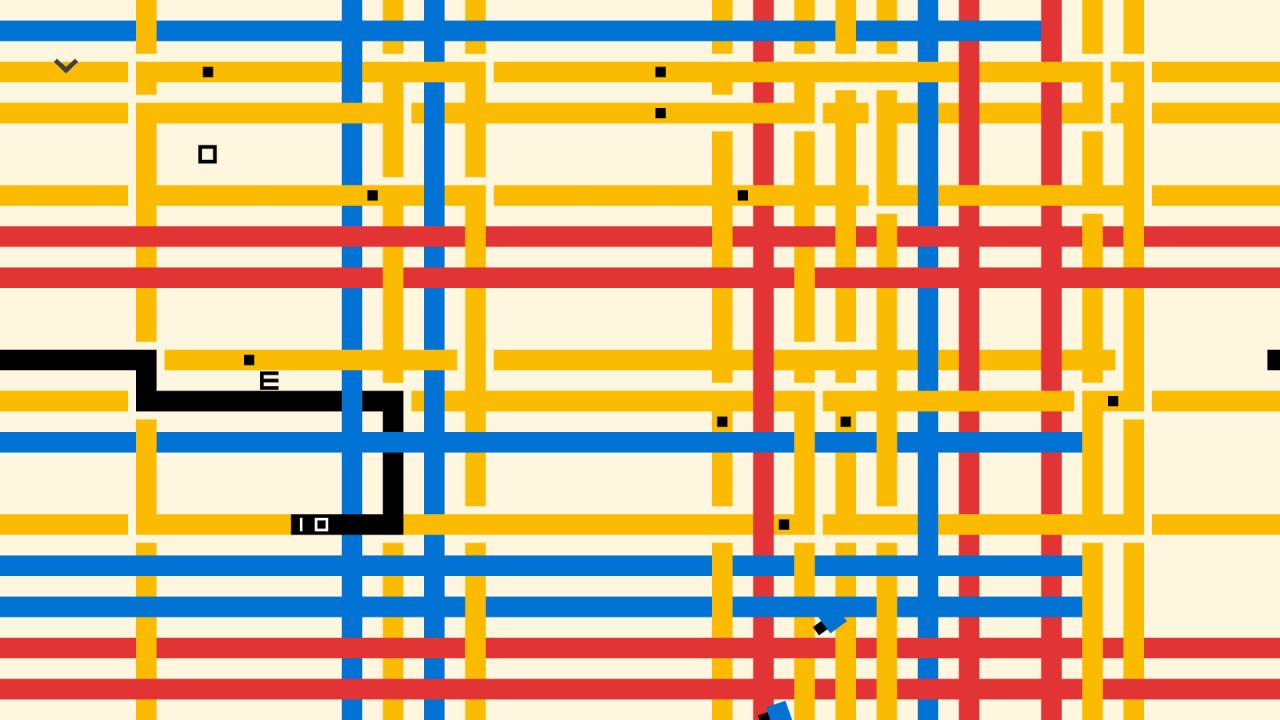
Please, Touch The Artwork
Please, Touch the Artwork is a collection of three sincere puzzle games, each drawing inspiration from abstract art. The games vary in their specifics: one involves mechanically recreating Mondrian-style paintings, another transforms Broadway Boogie Woogie into a love story, and the third reframes New York City as a metaphor for adjusting to life in a big new city. While the difficulty level varies, the game is explicitly designed to be a low-stress experience, with no timers, and readily accessible hints and a redo button.
What sets Please, Touch the Artwork apart is not its commentary on De Stijl and abstract art, as such works can never truly be “solved.” Instead, it offers insight into the experience of appreciating art and provides a close connection to the lone developer, Thomas Waterzooi, behind the game. The project exudes an intensely personal feel, inviting players to peer into the developer’s mind and witness how this form of art resonates with them. While some may perceive it as potentially pretentious, Please, Touch the Artwork is, at its core, a welcoming, bold, and sincere experience, even on a mechanical level.
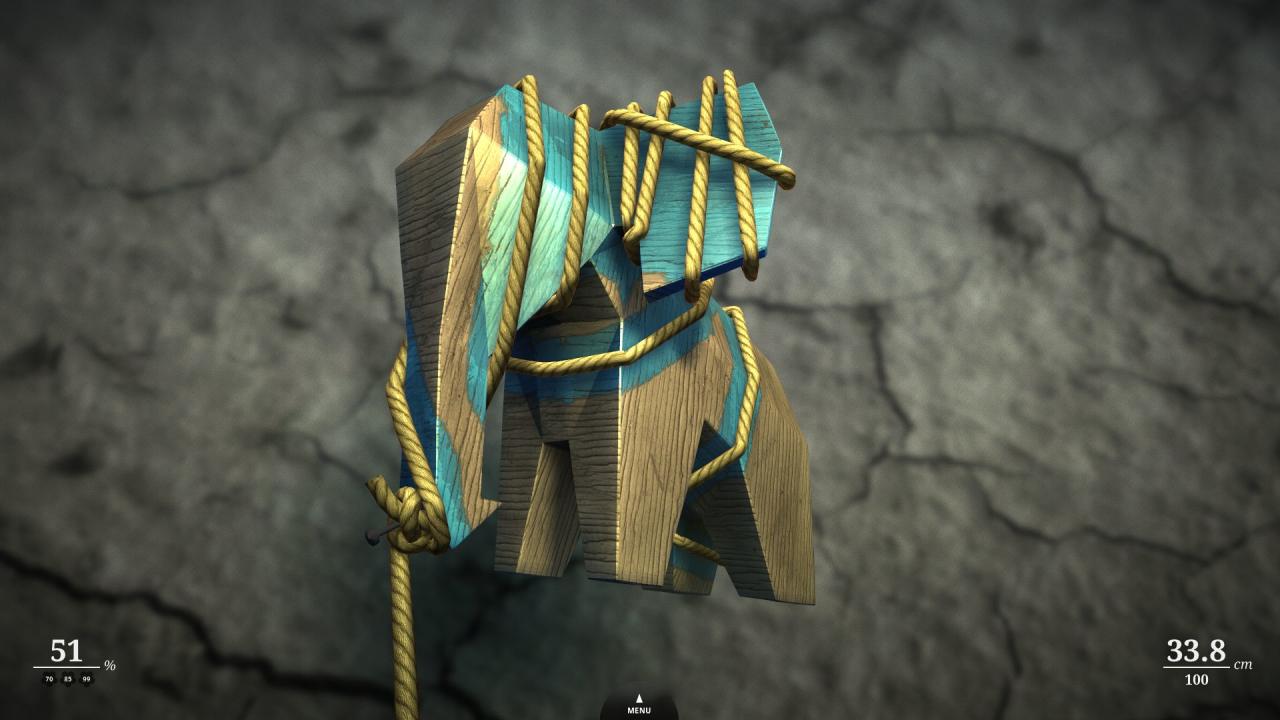
Zen Bound 2
Zen Bound 2 features a simple yet engaging premise: players must wrap a rope around a series of 3D structures until they are completely covered, coating them with paint in the process. While the sculptures may appear straightforward at first, they often present hidden gaps and sharp angles, making the game more challenging than it initially seems. Playing Zen Bound 2 requires a slow and contemplative approach, akin to meditating on the object being bound. The game encourages reflection on the physical nuances of the things one ties themselves to in real life. Despite the potential for sounding profound, Zen Bound 2 offers a thoughtful and immersive way to unwind, providing a serene experience for those looking to zone out and relax.

